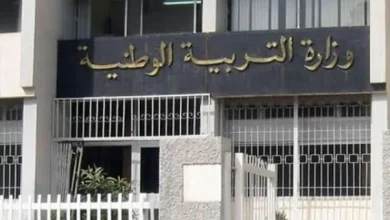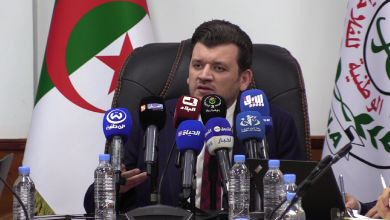A Saudi Arabian Airlines flight scheduled to depart from Algiers to Jeddah was temporarily grounded this morning after a bird strike incident occurred during takeoff preparations. The incident, which involved a flock of birds colliding with the aircraft, resulted in minor damage to the plane’s fuselage and prompted immediate safety protocols to be enacted. The event highlights the ongoing challenges faced by aviation authorities in mitigating the risks posed by wildlife near airports, particularly during migratory seasons.
According to sources at Houari Boumediene Airport in Algiers, the Saudi Airlines aircraft was preparing for its scheduled departure when the flock of birds unexpectedly flew into its path. The impact caused noticeable scratches and dents on the exterior of the plane. While the damage was initially assessed as minor, airline officials and airport authorities prioritized passenger safety and decided to cancel the flight to conduct a thorough inspection and ensure the aircraft’s airworthiness before it could be cleared for takeoff.
“The safety of our passengers and crew is always our top priority,” stated a spokesperson for Saudi Arabian Airlines in a released statement. “Following the bird strike incident, we immediately initiated standard operating procedures, which included grounding the aircraft for a comprehensive technical evaluation. We understand this has caused inconvenience to our passengers, and we are working diligently to minimize the disruption.”
Following the cancellation, passengers were immediately provided with accommodations, meals, and alternative travel arrangements. The airline is reportedly working to rebook passengers on the next available flights to Jeddah, with some passengers opting for flights through other connecting cities. The airline has also deployed additional staff to the airport to assist passengers with their inquiries and provide support during this period of unexpected delays.
Airport officials confirmed that the aircraft is currently undergoing thorough inspections and necessary repairs by specialized maintenance teams. The assessment includes a detailed examination of the engines, wings, and fuselage to identify any potential structural damage that may have resulted from the bird strike. The maintenance teams are adhering to strict safety protocols and aviation regulations to ensure the aircraft’s complete operational readiness before it is permitted to return to service.
Bird strikes are a common concern for airports worldwide, especially during periods of bird migration. Airports employ various methods to mitigate the risks posed by birds, including habitat management, noise deterrents, and visual deterrents. These strategies aim to discourage birds from congregating near runways and flight paths, reducing the likelihood of collisions with aircraft. Houari Boumediene Airport, like many international airports, has implemented a comprehensive wildlife management program to address this issue. However, experts acknowledge that completely eliminating the risk of bird strikes is an ongoing challenge.
For more information about Algeria, check our dedicated section.
“Airports around the world invest heavily in wildlife management to minimize the potential for these types of incidents,” explained aviation safety expert, Dr. Leila Benali, in an interview with DZWatch. “However, the dynamic nature of bird populations and their migratory patterns means that constant vigilance and adaptation are essential. The key is to implement a multi-layered approach that combines habitat modification, active deterrents, and effective communication between air traffic control and flight crews.”
The incident involving the Saudi Airlines flight serves as a reminder of the potential impact of wildlife on aviation safety and the importance of robust risk management strategies. While the immediate focus remains on repairing the aircraft and accommodating affected passengers, the incident is also prompting a review of existing wildlife management protocols at Houari Boumediene Airport. Officials are expected to analyze the circumstances surrounding the bird strike and identify any potential improvements to enhance the effectiveness of preventative measures.
Furthermore, the incident is likely to reignite discussions about the broader challenges of balancing airport operations with environmental considerations. As air travel continues to grow, the potential for interactions between aircraft and wildlife increases, demanding ongoing innovation and collaboration between aviation authorities, environmental organizations, and researchers. The development of new technologies, such as advanced radar systems for detecting bird movements, and the implementation of more sustainable land management practices around airports, are seen as crucial steps towards mitigating the risks and ensuring the continued safety of air travel.
The Saudi Airlines incident also highlights the critical role of international collaboration in addressing aviation safety challenges. Sharing best practices, exchanging data on bird migration patterns, and coordinating wildlife management strategies across borders are essential for minimizing the risks of bird strikes and other wildlife-related incidents. The incident serves as a valuable learning opportunity for airports worldwide, reinforcing the importance of proactive risk management, continuous improvement, and a unwavering commitment to passenger safety.
As of this report, the affected Saudi Airlines flight remains grounded at Houari Boumediene Airport, and the airline is working to finalize alternative travel arrangements for the stranded passengers. DZWatch will continue to provide updates on this story as more information becomes available. The incident underscores the complex interplay of factors that can affect air travel and the constant vigilance required to maintain the highest standards of aviation safety.



